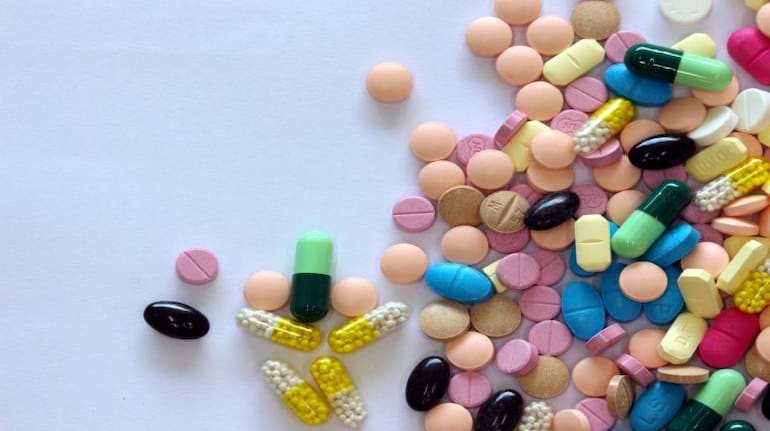



Indian Council of Medical Research’s COVID-19 National Task Force has decided not to include antiviral drug Molnupiravir in the clinical management protocol for COVID-19 due to safety concerns, as of now, Union Health Ministry said on January 12.
The ministry said that after trials and discussions it has been found that Molnupiravir was not of much benefit in COVID-19 treatment since the drug has risks and warrants caution in use.
Efforts should be made to restrict its use as the known and unknown harms far outweigh its claimed benefits, the ministry said.
Catch all live updates on Coronavirus Omicron on our Live Blog here“We have had extensive discussion among national experts and we reviewed whatever data is available from the three trials. One (MOVe-In) trial was on 1433 patients, the MOVe OUT trial was prematurely terminated for business reasons and the MOVe-AHEAD trial which is ongoing and there are 12 clinical trials registered on the Clinical Trial Registry of India which are also about to start,” said ICMR chief Balram Bhargava on January 12.
In response to a question on Molnupiravir use, during the Health Ministry’s routine press conference, Bhargava read out the final conclusions of the deliberations.
“One, Molnupiravir has certain risk that warrant caution in its use. Two, experts present at the meeting opined that there is a rampant and irrational use of Molnupiravir, three, efforts should be made to restrict its use as known and unknown harms far outweigh its claimed benefits, four, the currently available synthesized evidence was reviewed and the members unanimously agreed that it doesn’t merit the inclusion of Molnupiravir in the national treatment guidelines,” he said adding that the emerging evidence will be constantly reviewed.
Also, read: Demand for plots and independent floors stages strong comeback in pandemic, overtakes apartments
According to the Union health ministry, Molnupiravir, developed by US-based drug company Merck, is an antiviral drug that inhibits SARS-CoV-2 replication by viral mutagenesis. The anti-COVID pill got the Drug Regulator General of India's approval on December 28 for restricted use in emergencies.
“And the last point, it was further highlighted that the current clinical window of application appears extremely narrow for Molnupiravir with relevance to the following: the elderly, unvaccinated with other co-morbidities. There was no evidence for benefit in diabetes and those who were previously infected, with COVID-19 or were vaccinated,” he said.
Elaborating further, Dr VK Paul, Niti Aayog Member (Health) said many countries have approved the drug but has not been included in guidelines for COVID-19 treatment.
Also, read: COVID-19 | FICCI writes to Health Minister Mansukh Mandaviya, makes recommendations for tackling virus surge
“UK has approved on November 4 but the NICE guidelines there has not included it. Denmark has approved but not included in national guidelines. USA has approved it and included in NIH guidelines with conditions. The WHO has not included it either,” Dr Paul said.
In December 2021, the US Food and Drug Administration (FDA) granted an emergency use authorization (EUA) to Molnupiravir for use in certain populations where other treatments are not feasible. The emergency use authorization was only narrowly approved (13-10) because of questions regarding efficacy and drug safety
France has this week cancelled its order for Merck & Co's COVID-19 antiviral drug Molnupiravir following disappointing trial data, according TO a report in Reuters.
Also, read: Flipkart, 1MG report surge in demand for oximeters and testing kits as COVID-19 cases rise
Last, week Bhargava had said Molnupiravir had major safety concerns. He said this drug could cause defects in a developing foetus and could damage the muscles also.
“Contraception will have to be done for three months for male and female if this drug is given because the child born could be problematic due to teratogenic influence,” he said.
Discover the latest Business News, Sensex, and Nifty updates. Obtain Personal Finance insights, tax queries, and expert opinions on Moneycontrol or download the Moneycontrol App to stay updated!
Find the best of Al News in one place, specially curated for you every weekend.
Stay on top of the latest tech trends and biggest startup news.